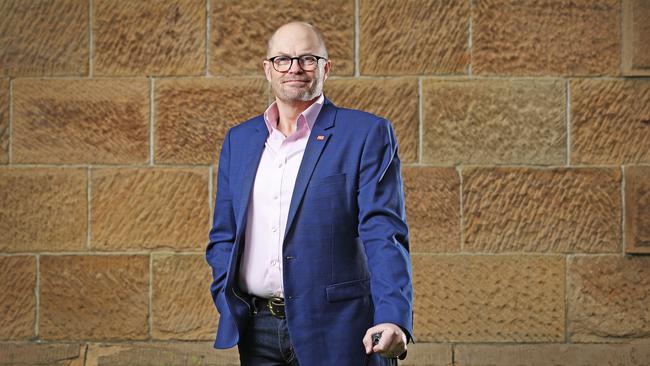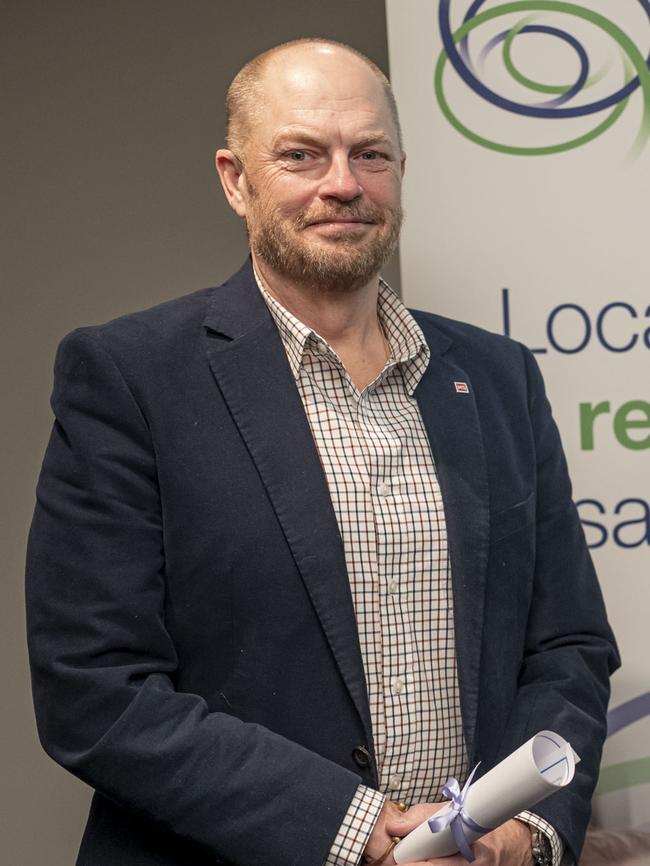“Couldn’t brief the Premier”: MS speech problems saw former senior health staffer resign
Life before MS saw Des Graham take regular “adventures” with his close group of motorbike and 4WD loving mates, but over the course of a decade he “didn’t see any of them anymore”. WHY MORE NEEDS TO BE DONE>>>
Tasmania
Don't miss out on the headlines from Tasmania. Followed categories will be added to My News.
Life before MS saw Des Graham take regular “adventures” with his close group of motorbike and 4WD loving mates, but over the course of a decade he “didn’t see any of them anymore”.
The social isolation and depths of depression that can follow an MS diagnosis have been profound for Associate Professor Graham.
He said this highlights the need for specialist MS Nurses in the state, who not only assist with the practicalities of organising treatment and everyday living, but the many comorbidities of the disease including mental illness.
“When I was first diagnosed ten years ago my two children were only in their teens and my wife and I immediately thought we had received a death sentence,” Associate Professor Graham said.

“It would have been great to have had an MS Nurse there then to explain it all properly.”
Associate Professor Graham is a passionate advocate in campaigning for six state-funded MS Nurses, not only due to his own personal experience, but also due to his extensive career in the health industry.
As the former Deputy Secretary of the Health Department, resigning five years ago due to MS complications, and a former registered nurse taking on duties in mental health nursing, bush nursing and as a Royal Flying Doctor Service Nurse, he has additional knowledge of the benefits MS Nurses can provide.

Associate Professor Graham has become a champion for MS patients as the Chair for MS Australia and the Australian representative for the MS International Federation; roles which he said filled the gaps after illness shut him off from his previous social life.
“After my diagnosis I worked for the next five years as the Department Secretary of Health, before it became progressively too difficult to do my job,” he said.
“I had fatigue and incredible pain, where every heartbeat set off a ripple effect with hundreds of thousands of blunt tacks of pain.
“I also had apraxia of speech, where my brain knew what to say but the nerve impulses that sent messages from my brain to my tongue were interfered with and I would have to find another word...when trying to brief the Premier and lead ministers and you can’t speak properly it becomes a big problem.”
Report to help advocates in securing MS Nurses
A landmark MS Nurse Care in Australia Report released Tuesday will be used by Tasmanian advocates to lobby for six full-time, state-funded specialised Multiple Sclerosis nurses in the state.
The MS Australia report indicates that 8000 people nationwide do not have life-changing access to MS Nurses and recommends that state, territorial and federal governments provide funding for 50 more MS Nurses.
In Tasmania specifically, a third of the 1075 MS patients in the state are without access to an MS Nurse and six full time, “undiluted”, MS Nurses should be funded by the state government, MS Nurses of Australasia president Belinda Bardsley said.
“MS Nurses are there from the time of diagnosis throughout the course of the disease to provide expert care and support for our patients,” she said.

“Specialised nurse care has many health advantages for those living with MS, including lower disability levels and slower disease progression.
“They help patients to manage their symptoms, side-effects, mental health implications and understand what is going on in their bodies.”
Minister for Health Jeremy Rockliff said the state government is committed to supporting Tasmanians living with MS and those who care for people affected by MS.
“Both the Royal Hobart Hospital and Launceston General Hospital run weekly MS outpatient clinics, staffed by several Neurology specialists and an MS Clinical Nurse Consultant who process referrals and coordinate ongoing patient care,” he said.
“In addition, the MS Society employs one nurse in a statewide support role and MS Limited employs one nurse, supporting patients in the North and North-West.
“Health resource allocation is an important part of the annual budget process, and I encourage MS Australia to consider a budget submission to be considered as part of the 2023-2024 Budget process.”
Ms Bardsley said it would cost around $5million annually to fund 50 more MS Nurses but this would lead to a wider “cost benefit” of $62million per year”.
“These nurses help keep patients out of the hospital and emergency departments, avoid the need for many neurologist or GP appointments, provide supervision to allow patients to use higher efficacy therapies which ultimately keeps people leading productive and healthy lives and remaining in the workforce,” she said.
The report was released during The Progress in MS Research three-day conference which commenced on Monday at the Hotel Grand Chancellor in Hobart.



